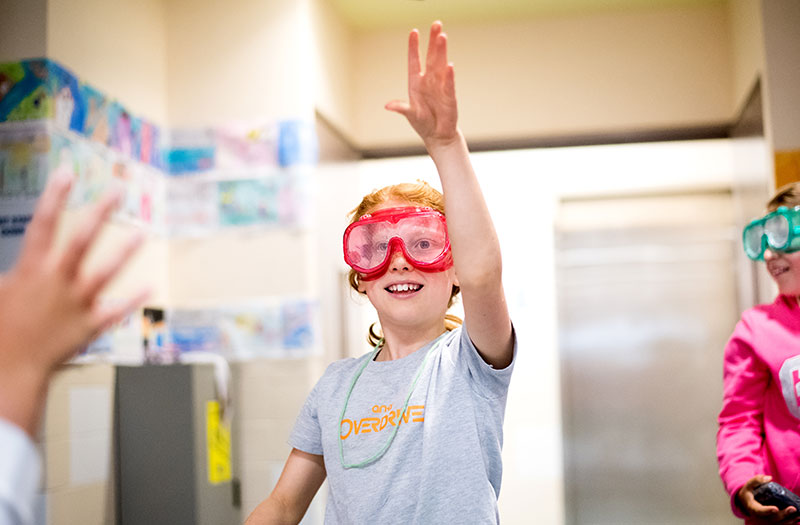| Title | Categories | Description |
|---|---|---|
|
Alternative Energy Part I (lesson 7/8) |
Energy |
Students explore what it takes to build a car using alternative energy sources (not gas).
|
|
Alternative Energy Part II (lesson 8/8) |
Energy |
Students explore four different types of propulsion systems test the difference between them looking at time and distance travelled
|
|
Conversion of energy into different forms (lesson 2/8) |
Energy |
Students investigate how energey can be converted from one from to another.
|
|
Electromagnets (lesson 4/8) |
Energy |
Students will learn, discuss, and practice the scientific method through hypothesizing and experimenting by using electromagnets to discover the relationship between electricity and magnetism.
|
|
Energy and States of Matter (lesson 5/8) |
Energy |
Students are introduced to the different states of matter. They observe ice melting, water evaporating and condensing through heating and cooling. Liquid nitrogen is being used to freeze different objects
|
|
Energy Conversion in Electricity – Resistors and Circuits (lesson 3/8) |
Energy |
After students have learned about the different types of energies and how they can be converted from one energy form to another, students get introduced to the concept of resistors. They create parallel
|
|
Investigating the types of energy in different objects (lesson 1/8) |
Energy |
Students sort through house old objects to determine which ones have energy in them and which ones do not, and realize that energy comes in multiple forms (chemical, mechanical, light, heat, electrical,
|
|
The energy of life in zebrafish (lesson 6/8) |
Energy |
Students observe and draw the different stages in the development of zebrafish embryos, 0 days to 7 day. They are introduced to the concepts, of cell(s), tissues and organs.
|
| Title | Description | Download |
|---|
All of SEP’s programs are offered free-of-charge. To do this work, SEP must annually raise nearly $2 million. Every donation brings us closer to that goal and helps to make this important work possible.

As part of UCSF, SEP is a 501(c)3 non-profit. All donations are tax deductible to the fullest extent of the law. Please let us know if your company participates in a matching gift program so that we can extend the benefit of your generosity.